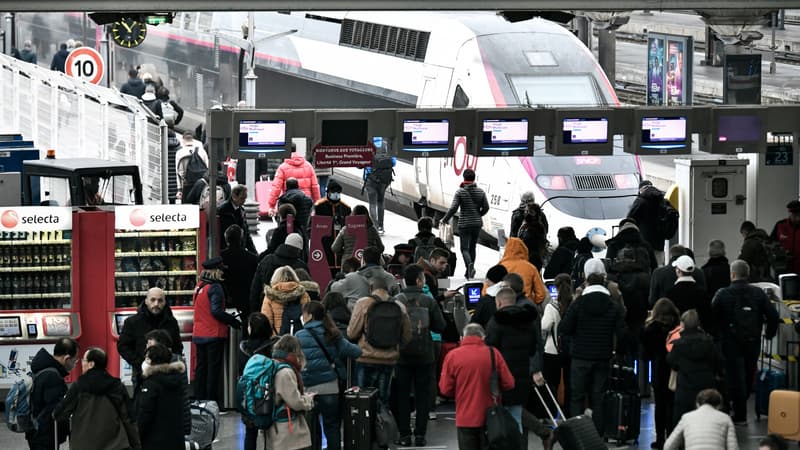The SNCF was full this summer. The railway company shows traffic growth of 2.4% in July and August in its main TGV and Interités lines, with “more than 25 million passengers transported in the domestic market”, despite the arrival of the competition to the Paris Maripas line.
The growth was promoted by favorable calendar effects, such as the July 14 and August 15 bridge, as well as the return of professional trips to the capital compared to 2024, the year of the Olympic Games (+16% of the number of professional travelers in July and August compared to the same period last year), the SNCF said.
In the Axis of Provence, where the Italian competitor Trenitalia has been present since June 30, the SNCF reserves “increased by 9% in July and August” compared to 2024, said Christophe Fanichet. The main summer destinations remain the facade of the Atlantic and the Mediterranean. The public company has also increased the number of places for the Alps.
TeR frequency also increasing
SNCF assistance has also increased this summer, 4% on average. In regional links around Nice, where the public railway company won a competition tender, the trains number has increased by 75% while maintaining the same regularity and quality of the service, said Christophe Fanichet.
On the other hand, the SNCF had to accept the arrival of a competitor, Transdev, on the regional axis of Marseille Nice, and awaits the result of the third lot open to the competition by the Proven-Alpes-Côte d’Azur (Paca) region for the TER (which are now called zou in Paca), from Marseille to the direction of this towards the Roya Valley.
In Paca, the SNCF has also won a tender to administer the sale of regional tickets. The SNCF Connect application will continue to sell “all tickets related to regional traffic”, even if the service is no longer provided by the SNCF, said Christophe Fanichet. “We must guarantee territorial continuity,” he added.
Fall into prices against competition
In terms of prices, the arrival of competition reduced prices. In Paris-Lyon, where competition has existed since 2021, prices “have been reduced on average by 10%” because the SNCF “changed its offer” by increasing the number of low-cost ouigo trains and reducing incomplete classic trains. “In 2030, one in 3 TGV will be an ouigo” on this axis, Christophe Fanichet plans.
Source: BFM TV


